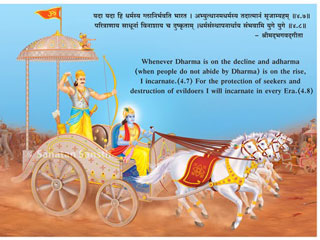
The convergence of genocide and identity erosion unfurls a complex tapestry where the term ‘Genocide’, a chilling semantic vessel, encapsulates the orchestrated horrors exacted upon the Kashmiri Pandit community. This classification signifies a meticulously orchestrated campaign of violence that transcends mere sporadic acts, instead bespeaking a premeditated, systematized nature. The targets of this brutality are inherently tied to their distinct identity, serving as a catalyst for the orchestrated violence that follows.
Panun Kashmir stands as an architect of profound identity metamorphosis, a manifestation of unwavering resilience and strategic purpose that has catalyzed a paradigm shift in the narrative of the Kashmiri Pandit community. Its emergence serves as a catalytic event that orchestrated a sweeping transformation, redefining the very contours of the collective identity of the Kashmiri Pandits. This movement, functioning as an intricate crucible for the revitalization of a beleaguered community, was adept in its role of mobilizing a fragmented and traumatized people, infusing them with a renewed sense of agency and self-worth. By coalescing them around a shared aspirational framework, Panun Kashmir adeptly harnessed the dormant potential that lay within their victimized identity, deftly steering them away from the abyss of humiliation towards the fortified bastion of sovereign self-respect.
This dramatic evolution traverses the trajectory from systemic humiliation to an embodiment of resplendent pride. The collective psyche of the Kashmiri Pandit community, ensnared by the clutches of desolation, was systematically fortified and restructured through the vigorous efforts of this movement. Panun Kashmir served as a catalytic agent in this metamorphosis.
Panun Kashmir, an entity that epitomizes tenacity and resurgence, occupies a pivotal position in this trajectory of collective transformation. The movement’s significance lies not only in its capacity to rejuvenate a beleaguered community but also in its potential to engender a paradigm shift in the sociopolitical landscape.
(Excerpts from an article written by Mr Tito Ganju, Editor, Epilogue Press for epilogue.in)

 A ruling party MLA tore a copy of the Waqf Amendment Act in the Jammu and Kashmir Assembly
A ruling party MLA tore a copy of the Waqf Amendment Act in the Jammu and Kashmir Assembly Pakistan Army intrudes into Indian territory and opens fire: India retaliates
Pakistan Army intrudes into Indian territory and opens fire: India retaliates Radiant Thoughts of Sachchidananda Parabrahman (Dr) Jayant Athavale
Radiant Thoughts of Sachchidananda Parabrahman (Dr) Jayant Athavale Law banning Conversion of Religion is against Individual Freedom : Babbles Former Judge S Muralidhar
Law banning Conversion of Religion is against Individual Freedom : Babbles Former Judge S Muralidhar Editorial : Khalistan, Balochistan and Pakistan
Editorial : Khalistan, Balochistan and Pakistan After India becomes a ‘Hindu Rashtra’, Russia will embrace Hinduism and spread it globally : Nostradamus’ Prophecy
After India becomes a ‘Hindu Rashtra’, Russia will embrace Hinduism and spread it globally : Nostradamus’ Prophecy